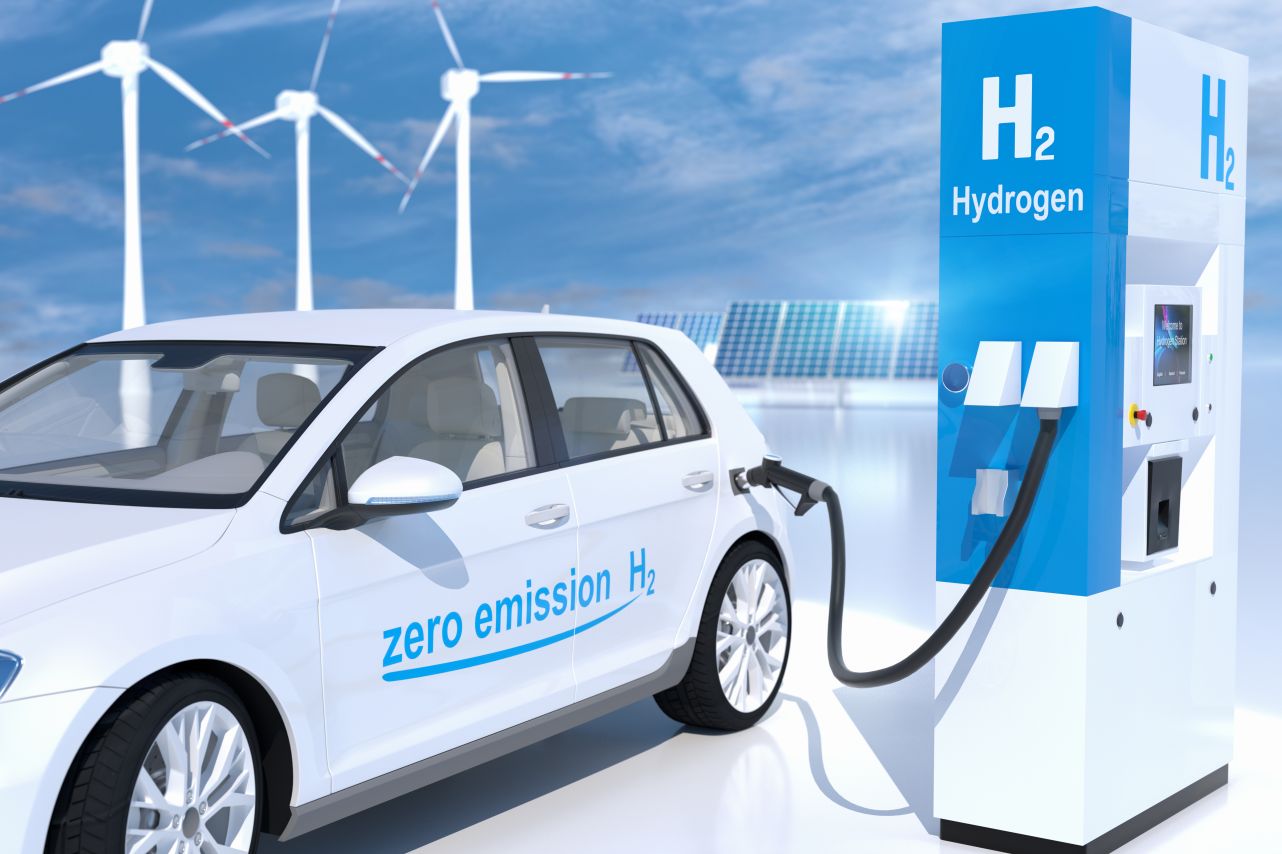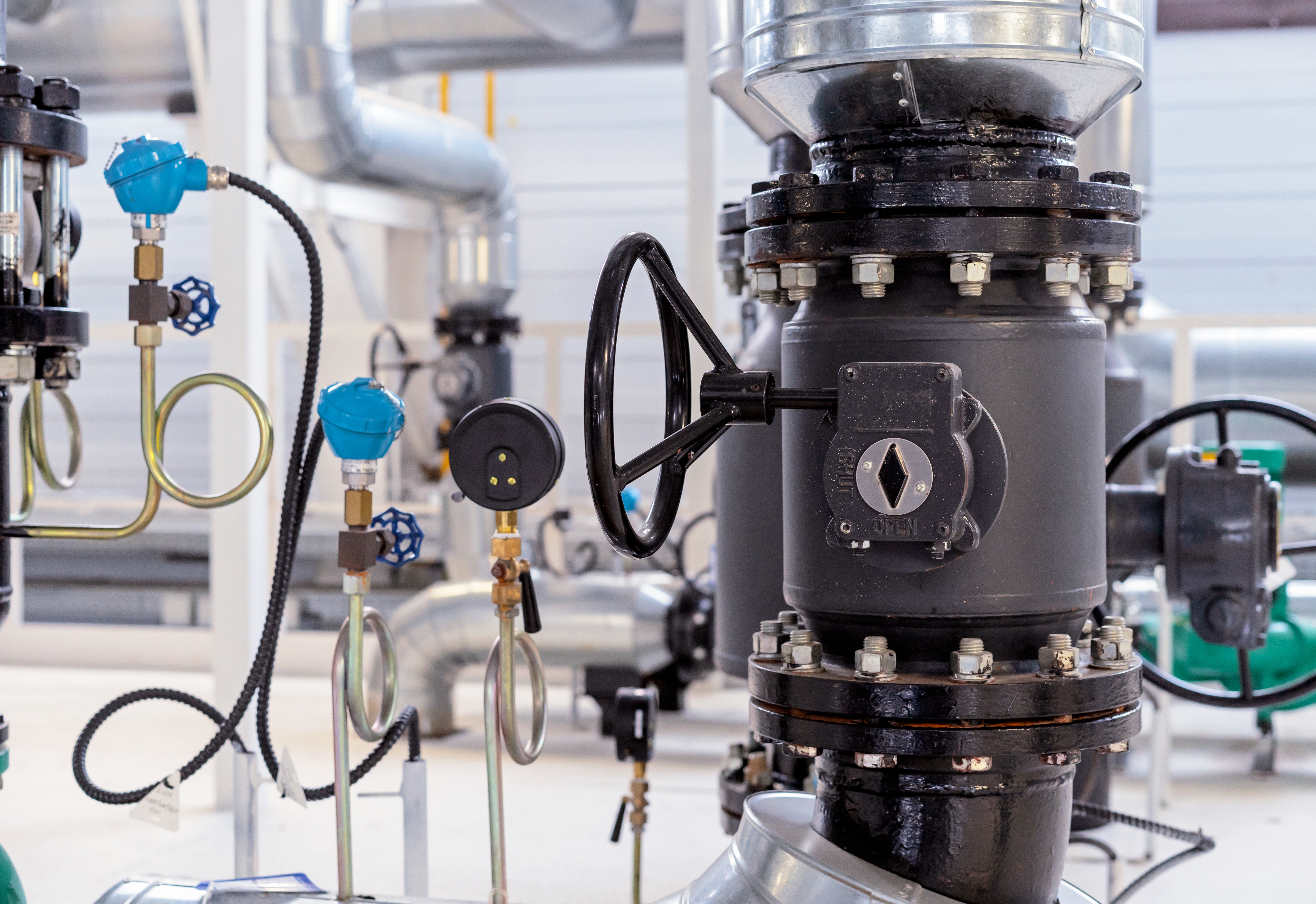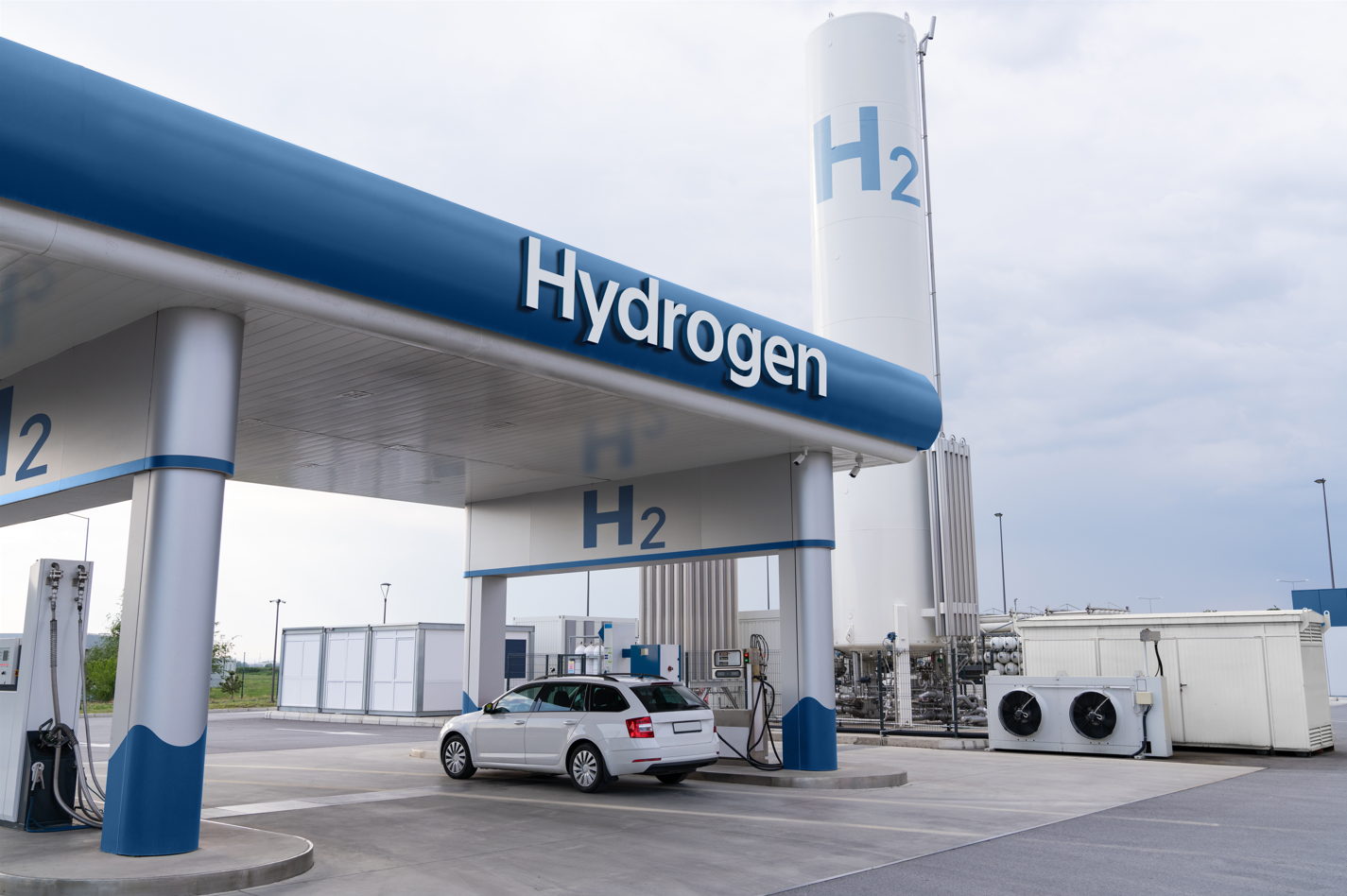Featured Articles
2023-01-10
The competitiveness of auto suppliers will depend on diversified power technologies led by hydrogen power
 Most of the OE brand boosts their development in Hydrogen power
Most of the OE brand boosts their development in Hydrogen powerToyota Develops Affordable Cars with a Hydrogen-fueled Internal Combustion Engine
As early as 2021, five companies including Toyota, Subaru, Yamaha, and Kawasaki announced at the press conference before the Japan Super Endurance Series held at the Okayama International Circuit in Japan that they will develop internal combustion engines based on hydrogen fuel to expand fuel selectivity and achieve zero emissions. The 5.0 V8 hydrogen-fueled internal combustion engine developed by Yamaha is based on the 2UR-GSE, which is currently used in Lexus RC-F, LC500 models, etc., and widely installed by the Toyota Group, and introduces a hydrogen-fueled prototype internal combustion engine. The use of hydrogen fuel to power the internal combustion engine preserves the sound, giving it an advantage over battery-powered models.
In addition to hydrogenation of high-performance internal combustion engines, Toyota has also conducted the same tests on affordable models, including the 1.6-liter turbocharged inline-3 internal combustion engine version of the GR Corolla H2 in all rounds of the Super Taikyu endurance touring car series in Japan, and the GR Yaris H2 in the Ypres Rally in Belgium. The company claims that such regular and intensive activities will help accelerate development and technological progress. It has increased the original hydrogen combustion power by 24%, increased torque by 33%, and the maximum horsepower has reached the same 300hp as the fuel version, which is comparable to that of the fuel version. A breakthrough that rivals the dynamic performance of gasoline internal combustion engines. In addition, the endurance has been extended by about 30%, and the hydrogen refueling time has been reduced from about 5 minutes to 90 seconds. The Corolla Cross H2 prototype vehicle equipped with GR Corolla H2, whose hydrogen storage tank comes from Mirai, has been tested in northern Japan at the end of 2022. At present, the commercialization rate of products such as the Corolla Cross H2 concept car is about 40%, and it is not yet certain that they can reach maturity on the road.
BMW affirms that hydrogen energy vehicles are an inevitable trend, with mass production of the iX5 hydrogen energy version by the end of 2022
The development trend of hydrogen vehicles in 2022 is quite different from the past. In the past, Toyota and Hyundai Motor, the two major automakers in Asia, struggled alone, and gradually evolved into a favorable trend that is widely recognized by major automakers and has established commercialization plans. This trend has spread to the iconic BMW car factory in Europe. In October 2022, Oliver Zipse, chairman of the company, pointed out in the UK that lithium vehicles have lasted for about 10 years and have rapidly expanded in scale. However, the lack of fully developed and maintained charging infrastructure may make the market vulnerable to higher efficiency technologies. Therefore, the next trend will be hydrogen. He believes that the current hydrogen fuel infrastructure is not perfect, but because it is stored in a hydrogen storage tank and can be filled at any time, hydrogen will become the most fashionable thing when it is more scalable.
Torsten Müller-Ötvös, CEO of Rolls-Royce under BMW, believes that hydrogen vehicles are suitable for its luxury driving style and brand image, which seems to reveal that BMW Group strategically intends to set hydrogen vehicles in the development of high-end models.
The most precise action on the BMW hydrogen vehicle began at the end of 2022, when the pilot production and testing of the hydrogen version of the iX5 began at the Research and Innovation Center in Munich, using the electric motor with the fifth-generation BMW eDrive technology and the high-performance battery developed for the vehicle, combined with two hydrogen tanks and a powerful drive system such as fuel cells integrated into the existing BMW X5 platform for low-volume production operation. And it is scheduled to start demonstrations of carbon-free transportation technologies in selected regions in the spring of 2023. BMW purchases the individual fuel cells needed to manufacture the BMW iX5 Hydrogen from Toyota assembles them into a fuel cell stack and installs all other components to form a complete fuel cell system. Some of the parts used by BMW have equivalent functions to the charge air cooler, air filter, control unit, and other technologies in the internal combustion engine, and the high-speed compression of the turbine and high-pressure coolant pump has also been specially developed for the hydrogen fuel cell system. Its cooperation with Toyota is not only on hydrogen vehicles but also includes the previous Z4 shared platform and Supra twin sports car models. The continuous output of the second-generation fuel cell used in the BMW iX5 Hydrogen has more than doubled, while the weight and size have been significantly reduced. Therefore, the company believes that hydrogen vehicles are already in an ideal position technically, and the technology of the drive system has reached considerable maturity and can be installed together with lithium vehicles to piece together a complete product line of electric vehicles.
Daimler Mercedes-Benz Hydrogen Heavy Vehicle Reaches a Range of 1,000KM
Based on the influence of long-distance transportation of heavy vehicles and adaptation to various environmental factors such as variable terrain and climate, the use of hydrogen fuel cells is the best choice, and it has become a consensus in the industry. The earliest development of hydrogen-powered heavy-duty vehicles began with the strategic development of Hyundai Motor of various models in an all-around way. In response to the necessity of hydrogen-powered heavy-duty vehicles in the mountainous terrain of Switzerland, it announced in 2019 that it would become the first country where the business will be launched. It was officially launched in 2020 and become the world's first mass-produced hydrogen truck for heavy-duty transportation. The truck has a dual array composed of 90 kW stacks, can provide 180 kW of power, is equipped with seven hydrogen tanks, and has a range of 400 kilometers. There are 47 units in operation in Switzerland by the end of 2022. Under the funding of the German Federal Government, 27 vehicles will be introduced into the largest market for commercial vehicles in Europe. Also, it received funding from the U.S. Environmental Protection Agency to deploy five hydrogen trucks in California.
Daimler-Benz Group has no plans to mass-produce passenger cars at this stage, but in 2021, it established CellCentric, a joint venture with Volvo Group, to jointly develop hydrogen-powered heavy vehicles. Then, a fully loaded 40-ton hydrogen truck was released at the IAA Transportation exhibition in Hannover in September 2022, demonstrating its practicality on public roads. The company preferred liquid hydrogen when developing hydrogen fuel drives for a long time, and cooperated with Linde to develop a new technology for processing liquid hydrogen called sLH2; compared with gaseous hydrogen, the energy carrier has a significantly higher energy density relative to volume. It can carry more hydrogen fuel, thereby increasing its endurance. It can reach 1000 KM without hydrogen refueling in the middle, making its performance comparable to that of traditional diesel trucks. It is especially suitable for heavy-duty long-distance transportation that requires flexibility and harsh application environments. Mass production is expected to begin in 2025. The progress of Volvo Group is roughly the same as that of Daimler.
References
As early as 2021, five companies including Toyota, Subaru, Yamaha, and Kawasaki announced at the press conference before the Japan Super Endurance Series held at the Okayama International Circuit in Japan that they will develop internal combustion engines based on hydrogen fuel to expand fuel selectivity and achieve zero emissions. The 5.0 V8 hydrogen-fueled internal combustion engine developed by Yamaha is based on the 2UR-GSE, which is currently used in Lexus RC-F, LC500 models, etc., and widely installed by the Toyota Group, and introduces a hydrogen-fueled prototype internal combustion engine. The use of hydrogen fuel to power the internal combustion engine preserves the sound, giving it an advantage over battery-powered models.
In addition to hydrogenation of high-performance internal combustion engines, Toyota has also conducted the same tests on affordable models, including the 1.6-liter turbocharged inline-3 internal combustion engine version of the GR Corolla H2 in all rounds of the Super Taikyu endurance touring car series in Japan, and the GR Yaris H2 in the Ypres Rally in Belgium. The company claims that such regular and intensive activities will help accelerate development and technological progress. It has increased the original hydrogen combustion power by 24%, increased torque by 33%, and the maximum horsepower has reached the same 300hp as the fuel version, which is comparable to that of the fuel version. A breakthrough that rivals the dynamic performance of gasoline internal combustion engines. In addition, the endurance has been extended by about 30%, and the hydrogen refueling time has been reduced from about 5 minutes to 90 seconds. The Corolla Cross H2 prototype vehicle equipped with GR Corolla H2, whose hydrogen storage tank comes from Mirai, has been tested in northern Japan at the end of 2022. At present, the commercialization rate of products such as the Corolla Cross H2 concept car is about 40%, and it is not yet certain that they can reach maturity on the road.
BMW affirms that hydrogen energy vehicles are an inevitable trend, with mass production of the iX5 hydrogen energy version by the end of 2022
The development trend of hydrogen vehicles in 2022 is quite different from the past. In the past, Toyota and Hyundai Motor, the two major automakers in Asia, struggled alone, and gradually evolved into a favorable trend that is widely recognized by major automakers and has established commercialization plans. This trend has spread to the iconic BMW car factory in Europe. In October 2022, Oliver Zipse, chairman of the company, pointed out in the UK that lithium vehicles have lasted for about 10 years and have rapidly expanded in scale. However, the lack of fully developed and maintained charging infrastructure may make the market vulnerable to higher efficiency technologies. Therefore, the next trend will be hydrogen. He believes that the current hydrogen fuel infrastructure is not perfect, but because it is stored in a hydrogen storage tank and can be filled at any time, hydrogen will become the most fashionable thing when it is more scalable.
Torsten Müller-Ötvös, CEO of Rolls-Royce under BMW, believes that hydrogen vehicles are suitable for its luxury driving style and brand image, which seems to reveal that BMW Group strategically intends to set hydrogen vehicles in the development of high-end models.
The most precise action on the BMW hydrogen vehicle began at the end of 2022, when the pilot production and testing of the hydrogen version of the iX5 began at the Research and Innovation Center in Munich, using the electric motor with the fifth-generation BMW eDrive technology and the high-performance battery developed for the vehicle, combined with two hydrogen tanks and a powerful drive system such as fuel cells integrated into the existing BMW X5 platform for low-volume production operation. And it is scheduled to start demonstrations of carbon-free transportation technologies in selected regions in the spring of 2023. BMW purchases the individual fuel cells needed to manufacture the BMW iX5 Hydrogen from Toyota assembles them into a fuel cell stack and installs all other components to form a complete fuel cell system. Some of the parts used by BMW have equivalent functions to the charge air cooler, air filter, control unit, and other technologies in the internal combustion engine, and the high-speed compression of the turbine and high-pressure coolant pump has also been specially developed for the hydrogen fuel cell system. Its cooperation with Toyota is not only on hydrogen vehicles but also includes the previous Z4 shared platform and Supra twin sports car models. The continuous output of the second-generation fuel cell used in the BMW iX5 Hydrogen has more than doubled, while the weight and size have been significantly reduced. Therefore, the company believes that hydrogen vehicles are already in an ideal position technically, and the technology of the drive system has reached considerable maturity and can be installed together with lithium vehicles to piece together a complete product line of electric vehicles.
Daimler Mercedes-Benz Hydrogen Heavy Vehicle Reaches a Range of 1,000KM
Based on the influence of long-distance transportation of heavy vehicles and adaptation to various environmental factors such as variable terrain and climate, the use of hydrogen fuel cells is the best choice, and it has become a consensus in the industry. The earliest development of hydrogen-powered heavy-duty vehicles began with the strategic development of Hyundai Motor of various models in an all-around way. In response to the necessity of hydrogen-powered heavy-duty vehicles in the mountainous terrain of Switzerland, it announced in 2019 that it would become the first country where the business will be launched. It was officially launched in 2020 and become the world's first mass-produced hydrogen truck for heavy-duty transportation. The truck has a dual array composed of 90 kW stacks, can provide 180 kW of power, is equipped with seven hydrogen tanks, and has a range of 400 kilometers. There are 47 units in operation in Switzerland by the end of 2022. Under the funding of the German Federal Government, 27 vehicles will be introduced into the largest market for commercial vehicles in Europe. Also, it received funding from the U.S. Environmental Protection Agency to deploy five hydrogen trucks in California.
Daimler-Benz Group has no plans to mass-produce passenger cars at this stage, but in 2021, it established CellCentric, a joint venture with Volvo Group, to jointly develop hydrogen-powered heavy vehicles. Then, a fully loaded 40-ton hydrogen truck was released at the IAA Transportation exhibition in Hannover in September 2022, demonstrating its practicality on public roads. The company preferred liquid hydrogen when developing hydrogen fuel drives for a long time, and cooperated with Linde to develop a new technology for processing liquid hydrogen called sLH2; compared with gaseous hydrogen, the energy carrier has a significantly higher energy density relative to volume. It can carry more hydrogen fuel, thereby increasing its endurance. It can reach 1000 KM without hydrogen refueling in the middle, making its performance comparable to that of traditional diesel trucks. It is especially suitable for heavy-duty long-distance transportation that requires flexibility and harsh application environments. Mass production is expected to begin in 2025. The progress of Volvo Group is roughly the same as that of Daimler.
References
- INSIDEEVs, 2021-05-20, Mark Kane, VW's Herbert Diess Says To Ditch Hydrogen Cars, Focus On BEVs
- Business Insider, 2022-02-19, Elias Holdenried, Volkswagen arbeitet weiter an der Brennstoffzelle — das beweist ein still und leise veröffentlichtes Patent
- Porsche Newsroom, 2022-08-18, Mastering the Nordschleife with hydrogen
- Hydrogen Fuel News, 2022-10-27, Julie Campbell, Why BMW Chair Oliver Zipse says hydrogen cars will be the “hippest thing” on the road
- Electrive, 2022-10-21, Chris Randall, Is Hyundai pulling out of hydrogen project in Switzerland?
- Toyota UK Magazine, 2022-12-9, Jake Weaver, Hydrogen Corolla Cross begins testing in Japan
- Honda Media Newsroom, 2022-11-30, Honda To Begin U.S. Production of Fuel Cell Electric Vehicles in 2024
- Mobility Outlook, T Murrali,2022-10-30, Stellantis Takes Next Step In Commercializing Hydrogen Fuel Cell
- V3Cars, 2022-12-25, Amit Saraswat, Tata Motors Likely To Showcase Hydrogen Fuel Cell Concept At The Auto Expo 2023
- FCHEA, 2022-07-25, Nova Thayer, Hydrogen in the Mining Industry
- H2Accelerate, 2022-09-05, Hydrogen trucking could be competitive with diesel as early as 2030, given the right policy support, according to a new whitepaper from the H2Accelerate collaboration



